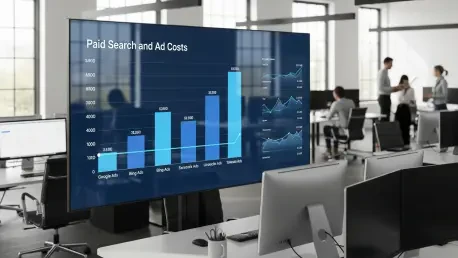
The digital real estate that once defined the success of a thousand marketing departments is currently undergoing a silent but aggressive colonization by generative intelligence. For years, the top of the Google Search Engine Results Page (SERP) was the undisputed gold mine of digital marketing—a

Anastasia Braitsik is a global leader in SEO, content marketing, and data analytics who has spent years navigating the volatile shifts of the digital advertising landscape. As a prominent expert in paid search strategy, she specializes in helping brands maintain profitability during periods of

The digital landscape has shifted from a simple game of keyword stuffing to a complex, multi-dimensional ecosystem where search engines now prioritize human intent over mechanical repetition. As of 2026, the traditional SEO playbook has been largely rewritten, replaced by a sophisticated framework

The digital marketplace has evolved into a high-stakes arena where the visibility of a brand is no longer determined by the size of its billboard but by the precision of its data-driven strategy. Search marketing has undergone a radical transformation, moving away from simple keyword matching

The traditional playbook for industrial marketing has undergone a radical transformation as technical buyers now complete nearly eighty percent of their journey before ever engaging with a sales representative. Manufacturers and technical service providers are navigating a digital environment where

Digital consumers no longer interact with search engines as simple index-card catalogs but rather as sophisticated cognitive partners that interpret the underlying psychological motivations behind every typed query or spoken command. For years, digital marketing operated like a game of "match the
1 2 3 4 5 6 7 8 9 10 11 12 13 14 15 16 17 18 19 20 21 22 23 24 25 26 27 28 29 30 31 32 33 34